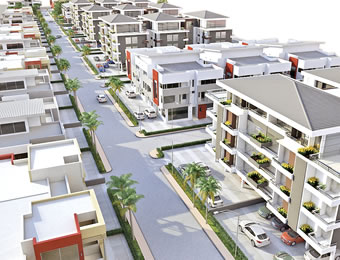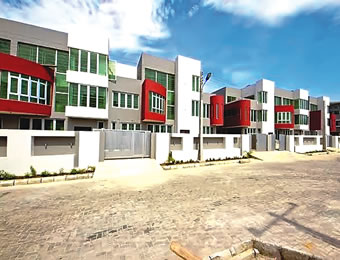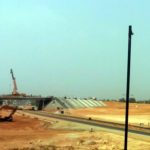Making the call at a public lecture organised by the Nigerian Institution of Mechanical Engineers (NIMechE), Lagos Branch, last week, Colonel Godwin Sunmola, (retired), who is the Head of Security Services, First Bank Nig. Ltd., noted that it’s high time the engineers fashioned out techniques that would discourage vandalisation or accidental disruption of the nation’s infrastructure as well as improve the safety of Nigerians.
NIMechE is an arm of the Nigerian Society of Engineers (NSE), that organised the public lecture entitled: “Physical Security Measures: Engineering as a Force Multiplier’’.
According to Sunmola,who is also a member of NIMechE and a fellow of the NSE, he noted that engineers have a major role to play in protecting the nation’s critical infrastructure.
“The purpose of critical infrastructure protection is to build capabilities and competences to strengthen physical and information technology facilities, networks, services and assets.’’
He noted that terrorism and other forms of violence usually put the nation’s infrastructure and individual assets at risk and that engineers can protect these facilities through appropriate security designs.
He urged that engineers must, at the design stage, take cognisance of the requirements to deter, detect, deny, delay and defend the products.
“These are the five-Ds of physical security measures. It is our job to design, build and maintain security infrastructure. Our design must, however, focus on security aspects to achieve the purpose for which physical security policy is formulated,’’ the security expert said.
He also stated that security engineering was a fast-growing field, which nations were using to enhance physical security and that Nigerian engineers should key into this trend.
According to him, if disrupted or destroyed, infrastructure will have negative impact on the health, safety, security and economic well being of the citizens.
Sunmola was of the view that physical security engineering demanded that various security gadgets, machines and men should work together to provide security, stating that attacks on critical infrastructure could disrupt the functioning of government and businesses, and negatively impact on the society.
He categorised critical infrastructure protection under three categories; cyber protection, physical protection and emergency protection and that physical protection, which is the focus of the lecture, include the use of video surveillance, access control devices and intruder alarms, among others.
Viewing from similar angle, Mr Bode Adewale, also an engineer, cited the example of what happened when some unscrupulous businessmen were vandalising aluminum rail protection on Lagos bridges, before it was changed to cast iron.
“It gotten to an embarrassing stage at certain point that some notorious ‘industrialists from certain part of the country were removing the aluminum rails, converting them to raw materials for household utensils such as cooking pots, spoons, and other materials.
“It took the ingenuity of engineers at the Federal Ministry of Works to change the rail from aluminum to other metal, ditto for the manholes, that were once at the mercy of the vandals”, he said.
WATCH TOP VIDEOS FROM NIGERIAN TRIBUNE TV
- Let’s Talk About SELF-AWARENESS
- Is Your Confidence Mistaken for Pride? Let’s talk about it
- Is Etiquette About Perfection…Or Just Not Being Rude?
- Top Psychologist Reveal 3 Signs You’re Struggling With Imposter Syndrome
- Do You Pick Up Work-Related Calls at Midnight or Never? Let’s Talk About Boundaries







